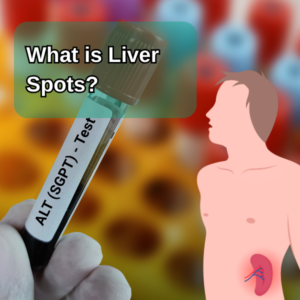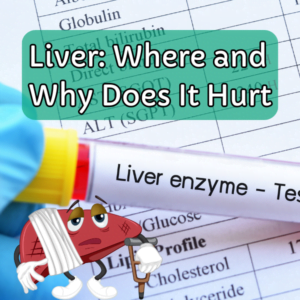+90 533 813 89 77
info@bookingforhealth.com

Types of Liver Transplantation

What is Liver Transplantation?
Liver transplantation is a surgical procedure where a healthy liver is transplanted into patients with severe liver diseases or damage. It serves as a life-saving or quality-of-life-enhancing option. The procedure involves obtaining a liver from either a deceased or living donor. Liver transplantation is a complex surgical process with eligibility determined by various factors.
This is recommended when the liver has been damaged to the point that it is no longer able to function properly, a condition known as liver failure or end-stage disease. Liver failure can be caused by a variety of factors, including illness, infection, alcohol abuse, and scarring of the liver (cirrhosis).
In some cases, liver failure can occur rapidly due to inflammation and death of liver tissue (necrosis). Liver transplant surgery can be performed in 3 different ways in general. Below are detailed descriptions of these procedures.
Living Donor Transplant
It’s the procedure in which a portion of a healthy person’s liver is removed and transplanted into a recipient with liver failure or end-stage liver disease. The donor’s liver regenerates and returns to normal size within a few weeks after the surgery.
Living donor transplants are typically performed when a suitable deceased donor’s liver is not available or when the patient’s condition is so severe that they cannot wait for a deceased one. They can also be an option for patients who have a rare blood type or other specific medical needs that make it difficult to find a matching deceased donor liver.
In order to be a living liver donor, a person must be in good physical and mental health, be at least 18 years old, and have a compatible blood type with the recipient. The potential donor undergoes a thorough medical evaluation to determine if they are a suitable candidate. This may include blood tests, imaging studies, and other diagnostic tests.
The living donor transplant procedure is typically performed laparoscopically, which means that the surgery is performed through several small incisions using specialized instruments. The surgery takes several hours to complete and is typically performed under general anesthesia.
The donor needs to stay in the hospital for several days to recover, and it may take several weeks to several months for the donor’s liver to fully regenerate.

Deceased Donor Transplant
A deceased donor transplant is a surgery in which the liver of a recently dead person is transplanted into a recipient with liver failure or end-stage disease. They are applied when a proper donor person is not available or when the patient’s condition is so severe that they cannot wait for a living person’s organ.
In order to be a deceased liver donor, the individual must have been declared brain dead and their family must have agreed to organ donation. The potential donor’s medical history, blood type, and other medical factors are evaluated to determine if their liver is suitable for the surgery.
The deceased donor transplant procedure is typically performed laparoscopically, which means that the surgery is applied through several small incisions using specialized instruments. It takes several hours to complete and is usually done under general anesthesia.
Split Liver Transplantation
It is a surgical application in which a single donor liver is divided and transplanted into two separate recipients. This can be an option when there are two patients in need of a transplant who are good matches for the same donor liver.
In a split liver transplant, the donor’s liver is divided into two parts, one of which is transplanted into each recipient. Both recipients receive a smaller liver than they would have if they received a whole liver transplant, but the smaller livers may regenerate and grow to a normal size over time.
Good Candidates for Liver Transplantation
It is typically recommended for people with advanced liver disease who have exhausted all other treatment options. To be considered a good candidate for a liver transplant, a patient typically needs to meet the following criteria:
- Have end-stage liver disease or liver failure,
- Be in good enough physical health to undergo major surgery,
- Have a strong support system in place to help with the recovery process,
- Be committed to following a healthy lifestyle after the transplant, including taking medications as prescribed and avoiding activities that could put the transplanted liver at risk.
In addition to these general criteria, there are also specific medical criteria that must be met in order to be considered a good candidate for a liver transplant. These ones may vary depending on the specific transplant center and the patient’s medical condition.
It’s important to note that the availability of donor’s livers is limited, and there is often a significant gap between the number of available livers and the number of patients on the transplant waiting list. As a result, it can take several months or even years for a suitable donor liver to become available for some patients.
What should be done for a healthy liver?
Balanced Nutrition: Prioritize a balanced diet rich in fruits, vegetables, and lean proteins while minimizing fatty and processed foods.
Alcohol Moderation: Limit or avoid alcohol consumption, as excessive alcohol can harm the liver.
Proper Medication Management: Follow your doctor’s instructions when taking medications and avoid overuse.
Vaccinations: Protect your liver by getting vaccinated against Hepatitis A and B.
Regular Exercise: Engage in regular physical activity to maintain a healthy weight and support liver health.
Maintain a Healthy Weight: A healthy weight reduces the risk of liver problems.
Hepatitis Prevention: Take preventive measures to avoid Hepatitis viruses.
Stress Management: Stress reduction techniques contribute to overall liver well-being.
Routine Check-ups: Regularly visit your doctor for liver health monitoring and early detection of potential issues.



